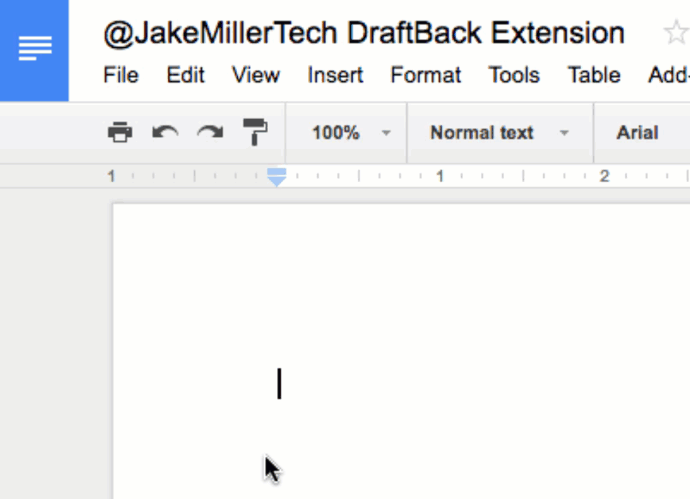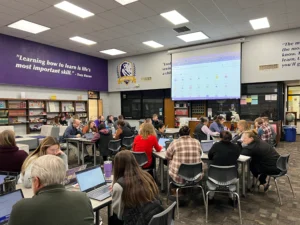I attended the NE Future Ready conference earlier this week and, as expected, AI dominated the conversation. AI is something we’re thinking a lot about at Short Answer, and we’ve got some exciting AI features in the pipeline to keep an eye out for this fall. That said, based on the conversations at the conference, it’s fair to say ELA teachers are thinking about AI more than just about anyone right now. Many are (rightfully) worried about the impact that text-based AI tools like ChatGPT will have on plagiarism: How do we stop ELA classes from becoming an exercise in copy-pasting?
Enter Draftback. Draftback is a free Google Chrome extension that allows users to play back the entire revision history of their Google Docs in a quick video (see the Gif below created by Jake Miller). It also provides easy-to-skim editing timelines and data reports. So, if you suspect a student has cheated using ChatGPT, you could request that student to turn in their Drafback video, and you would be able to quickly see if and when students copy-pasted large pieces of text into their essay.

Beyond a check for cheating, it’s also a powerful tool to promote student reflection on their writing. For example, I could see an activity in which an ELA teacher asks students to turn in video or text-based reflections (perhaps using a tool like Flip or Short Answer) in which the students describe or narrate their Draftback videos as a way to reflect on their writing. This would be a powerful way to develop metacognition and self-regulated learning skills in the realm of writing and ELA.
What is so powerful here is that Draftback can visualize the formation of thoughts over time. This can reveal students’ editing strategies and highlight their decision-making processes while writing, providing valuable insights to ELA teachers on where students might be struggling the most. Having students reflect on this would be so, so powerful. By reviewing their Draftback, students can assess the evolution of their work, identify areas of strength, and recognize opportunities for improvement. Developing that muscle of self-assessment and continuous improvement are invaluable skills for lifelong learning.
At the time of writing, I’m not aware of a Draftback equivalent in the Microsoft ecosystem (if there is, please reach out and let me know!). Perhaps students could make reflection video screencasts based on their revision history in Microsoft Word? This might be a good stop-gap activity while developers work on a Draftback equivalent for the Microsoft ecosystem.
In sum, tools like Draftback are an invaluable addition to the digital toolkit of Language Arts educators. It has the power to both combat plagiarism while also redefining the way teachers and students interact with written assignments.
Redefining the way teachers and students interact with written assignments is at the core of what we do every day at Short Answer, so we couldn’t be more excited for a tool like Draftback. If you know of other tools that are helpful in combating cheating in ELA or in redefining the ways that teachers and students interact with written assignments in classrooms, let us know by tweeting at us @myshortanswer or @mrsparkstweets!








